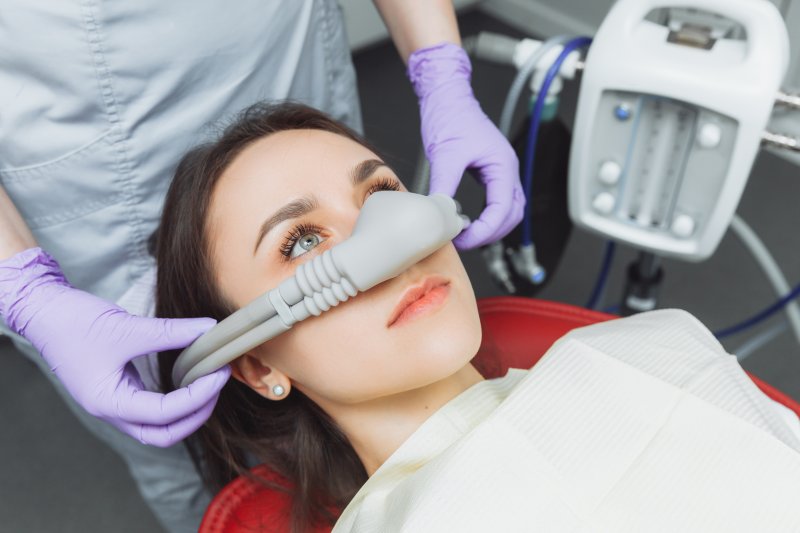
Many patients rely on dental sedation. The anxiety that can arise for some can be too much, meaning missed appointments and prolonged pain. However, when a dentist provides a way to keep them comfortable while receiving necessary treatment, it is often met with uncertainty that stems from falsehoods found on the internet. If you are concerned about receiving this type of calming solution because of something you’ve heard, keep reading to learn the truth behind some of the most common sedation myths.
Myth: Dental Sedation is Not Safe.
Are there stories of individuals who suffered complications because of sedation? Yes. Is this common? No. The reason is that when administered by a licensed dentist with years of training and experience, the process of receiving sedation is completely safe. This is true because it’s necessary that your dental professional review your overall health history to determine if you are a good candidate first.
Some individuals cannot receive oral conscious sedation or any other solution (i.e., nitrous oxide, IV sedation) because of various health conditions or medications that are being taken.
By carefully evaluating your health beforehand, your dentist can make sure you will have a successful experience – one without anxiety or fear.
Myth: Sedation Dentistry is Too Expensive.
Most dentists never want money to be a deterrent when it comes to receiving necessary oral healthcare. While many dental insurance companies do not offer coverage for sedation, this is not true in every case. However, even if your policy will not help reduce the financial expense of this type of treatment, you can inquire about alternative ways to pay.
Certain dentists provide in-house membership plans that make it easy to get access to discounted care. If you are uninsured, you can pay one low membership fee each year and receive quality dental services at a reduced rate.
Myth: You Will Fall Asleep When Receiving Sedation.
It is true that you may doze off when receiving dental sedation; however, this is not always the case. Only general anesthesia is known as “sleep dentistry,” and it’s often reserved only for the most complex cases. All other forms of sedation will create a calm, comfortable, and slightly euphoric experience. Instead of being bothered by your surroundings, you’ll be undeterred by what is occurring, allowing you to fully relax throughout treatment.
If you do fall asleep, you will remain cognizant enough that your dentist can easily wake you up.
Don’t let these myths and more keep you from taking care of your oral health. By talking to your dentist and expressing your concerns, they can set the record straight and help you get the solutions you need to enjoy a healthier smile without additional anxiety.
About the Author
Dr. Xhelo Shuaipaj has been providing top-tier dentistry in Downers Grove and Lemont for more than 25 years. Offering comprehensive services and calming solutions to help individuals struggling with dental anxiety, he and our team at Dentique Dental do our best to create a comfortable experience that allows all patients to access the care they need. If you are curious about dental sedation, contact us via our website or by calling (630) 912-7171 to learn more about how we can help.
